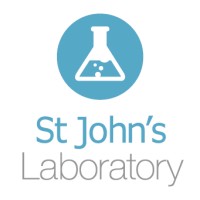Capicua / Unconjugated /
Product Details
| Description | Rabbit polyclonal to CIC | |
|---|---|---|
| Conjugate | Unconjugated | |
| Clone | ||
| Target Species | Mouse | |
| Applications | WB | |
| Supplier | St John's Laboratory | |
| Catalog # | Sign in to view product details, citations, and spectra | |
| Size | ||
| Price | ||
| Antigen | ||
| Host | ||
| Isotype |
About Capicua
The protein encoded by this gene is an ortholog of the Drosophila melanogaster capicua gene, and is a member of the high mobility group (HMG)-box superfamily of transcriptional repressors. This protein contains a conserved HMG domain that is involved in DNA binding and nuclear localization, and a conserved C-terminus. Studies suggest that the N-terminal region of this protein interacts with Atxn1 (GeneID:6310), to form a transcription repressor complex, and in vitro studies suggest that polyglutamine-expansion of ATXN1 may alter the repressor activity of this complex. Mutations in this gene have been associated with olidogdendrogliomas (PMID:21817013). In addition, translocation events resulting in gene fusions of this gene with both DUX4 (GeneID:100288687) and FOXO4 (GeneID:4303) have been associated with round cell sarcomas. There are multiple pseudogenes of this gene found on chromosomes 1, 4, 6, 7, 16, 20, and the Y chromosome. Alternative splicing results in multiple transcript variants encoding different isoforms. [provided by RefSeq, Feb 2015]
The protein encoded by this gene is an ortholog of the Drosophila melanogaster capicua gene, and is a member of the high mobility group (HMG)-box superfamily of transcriptional repressors. This protein contains a conserved HMG domain that is involved in DNA binding and nuclear localization, and a conserved C-terminus. Studies suggest that the N-terminal region of this protein interacts with Atxn1 (GeneID:6310), to form a transcription repressor complex, and in vitro studies suggest that polyglutamine-expansion of ATXN1 may alter the repressor activity of this complex. Mutations in this gene have been associated with olidogdendrogliomas (PMID:21817013). In addition, translocation events resulting in gene fusions of this gene with both DUX4 (GeneID:100288687) and FOXO4 (GeneID:4303) have been associated with round cell sarcomas. There are multiple pseudogenes of this gene found on chromosomes 1, 4, 6, 7, 16, 20, and the Y chromosome. Alternative splicing results in multiple transcript variants encoding different isoforms. [provided by RefSeq, Feb 2015]
Experiment Design Tools
Panel Builders
Looking to design a Microscopy or Flow Cytometry experiment?
Validation References
Reviews & Ratings
| Reviews |
|---|
Looking for more options?
142 Capicua antibodies from over 13 suppliers available with over 34 conjugates.





